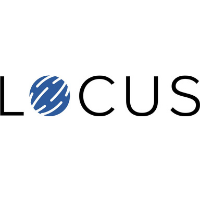
Locus.sh
View Brand PublisherThe making of an enterprise: How Locus created a work culture that spurs innovation and growth

A sporting enthusiast who has tried his hands at adventure sports including parkouring, slacklining, rafting, scuba diving, and has also represented India at the International Tennis Tournament - Juniors.
A father of a two-year-old who shares some hilarious experiences about changing nappies as well as his perspective on equal parenting.
An Android Developer who went on to become Vice President of Engineering.
At the outset, it may seem like there’s nothing common between the three. But it turns out, they all work for the same company – Locus.
The three are among the 100+ innovators at Locus who not only work on innovative and interesting projects in the office, but are also actively encouraged to pursue other passions, enjoy flexi-working hours, chart their own professional growth at the company and more.
Putting employee happiness at the core of the business
This people-first approach has been a signature of Locus right from its early days when it was set up in a residential flat in 2015, to the present day where they are counted among leading logistics automation companies globally.

The founders, Nishith Rastogi and Geet Garg, believe that a company’s health largely depends on how happy its employees are. “It’s not just about keeping the attrition rate down, but helping employees achieve their full potential, which automatically boosts the company’s performance,” says Nishith, who’s also the CEO.
Sharing how Locus actions this concept, and why that is of key importance to him, is sports enthusiast Pranav Divakar, who heads International Marketing at Locus. “Sports is what has built my character over the years. That’s why I try and play every sport that I have the opportunity to play. It also helps that Locus has been extremely encouraging. Be it the registration fee for corporate tournaments or the cost for practice courts, Locus takes care of these. The flexible working hours also mean that I can go out and play at any time of the day.”
Beyond just designations
Employees being actively encouraged to pursue their passions and interests out of the scope of work is one of the many perks of the work culture at Locus. However, its commitment to being a people-first organisation is seen in many meaningful policies it has implemented, such as 30-day paternity leave, in addition to flexible working hours for both new mothers and fathers. “For us, employees come first. But we also believe that for a parent, it’s the child who comes first. That’s why our paternity leave policies are as strong as the maternity benefits. We do everything we can to ensure that fathers get to bond with their child as much as mothers do,” says Nishith.
Parents like Shantanu Bhattacharyya will vouch for this fact. The Lead Data Scientist at Locus remembers the early days when he became a father two years ago. “The delight of becoming a father soon metamorphosed into anxiety, because I wanted to make sure I did everything right. Not having to worry about work was a huge relief. Without time off, I would have done a poor job both at work and at home. The month-long paternity leave provided the cushioning and mind space I needed to settle into my new role as a father.”
Today, the flexi-hours and work-from-home options help Shantanu strike a great balance between work and home. He says, “Workplace norms that give space and time to a new father to settle into parenthood can go a long way in establishing equal parenting. I can personally vouch for how much my time off and the ability to work from home has helped me enjoy my parenthood.”
An empowered work culture that encourages people to experiment and innovate
The “people-friendly” policies which recognise that employees at Locus are more than just their designations at work is definitely appreciable. What’s also important is that Locus is working towards creating a transparent work culture. Nishith says, “From letting them decide their leaves to letting them move across teams, we work with the mindset that everyone knows their responsibility. We encourage our people to experiment, innovate and fail, and often reward them for it.”
Jamsheed Kamardeen, VP of Engineering, is one such employee. “I joined Locus as an Android app developer three and a half years back. Initially, my plan was to extend my skill set to iOS app development.” Eventually, he worked across Frontend Development, Backend, iOS, DevOps, IT infrastructure, Information Security, pretty much everything he could get his hands on. “Locus gave me the chance to do stuff that seemed unconventional and even fail. From just being an Android developer to becoming the VP of Engineering and Chief Information Security Officer - I believe the opportunity to move across verticals helped me learn, relearn and gain knowledge that helps me in my current role today. The kind of trust that Locus has on its people and the space it accords to innovate and make mistakes is what makes it the best place to work.”
This could also be the reason why Locus has a lot of old-timers, something that’s a matter of pride. Palash Karia is one among them. The engineer at Locus began as a design intern at RideSafe a women’s safety initiative before it pivoted into Locus. “As a third-year engineering student, I thought it was just an internship and never imagined it would prove to be a long-term relationship.” Over the next few months, he worked across a number of verticals and helped launch Locus as a B2B product. “After my internship, I continued working remotely for Locus and knew that this was the place to be. What I have realised in this journey is that growth at Locus is always about good impactful work.”
Combining the power of technology and its tinkerers to maximise growth
The co-founders believe that as much as the close-knit team is a key strength for the company, their technology and agility to make customisable products is an equal driving force.
Today, Locus is a global decision-making platform in the supply chain that uses deep learning and proprietary algorithms to provide route optimisation, real-time tracking, insights and analytics and beat optimisation. Locus automates human decisions required to transport a package or a person, between any two points on earth, delivering gains along efficiency, consistency, and transparency in operations. They have been working with over 40 medium to large enterprises across e-commerce, home services, retail, CPG and FMCG and 3PL. Their clientele includes some of the fast-growing businesses in India– bigbasket, Myntra, Licious, Lenskart as well as bigger businesses like Blue Dart.
Over the last few years, Locus has achieved a peak of 1 million orders processed in a day (200,000 orders an hour) and its solutions have now been trained and tested on over 100 million order deliveries, and operations expanded to 75 cities across the globe. “One of the reasons Locus is ahead of the competition is probably because our products have data science at their core, whereas most other tech companies have data science at their periphery,” says Ashish Sharma, VP, Engineering.
That apart, it also helps that the Locus team thinks innovatively and responds to the need and demand of the market instead of just following the set product development plan. For instance, when they found that the location tracking on the Locus app was relatively better for their clients, they went ahead and integrated this feature based on client demand. “This was never a part of our feature update plan, but today we have a number of clients using it. That said, we don’t just spend a lot of time building new features. In fact, 30 percent of our engineering bandwidth goes into keeping our platforms updated and removing any tech debt that is accrued over time,” he adds.
The work at Locus is not always just about market or competition, it also aims to get the engineers and data scientists thinking on their feet. Ashish shares, “Locus solves NP-hard tech problems that cannot be solved using formulae. The problem statements we try to solve always account for numerable variable factors, which makes it difficult yet fun to solve.”
The next few years will see Locus maximising its growth potential by expanding its global footprint. In 2019, Locus has plans to expand into North America and Southeast Asia including Singapore, Malaysia, Indonesia, and Vietnam.
Contributing to this growth story are its team of innovators and empowering culture.
“From day one till today, we have ensured that we complement our rapid growth with consistent high-level performance on a daily basis,” says Nishith.
And it’s easy to see how they do it.








